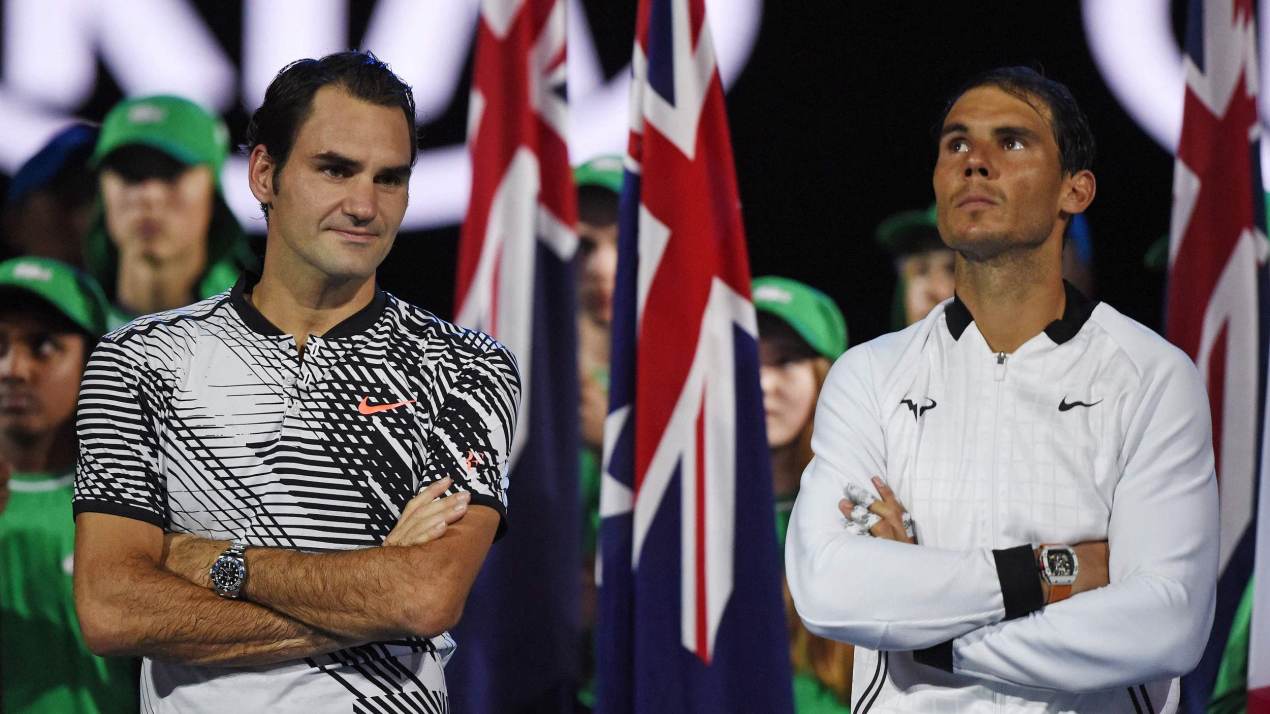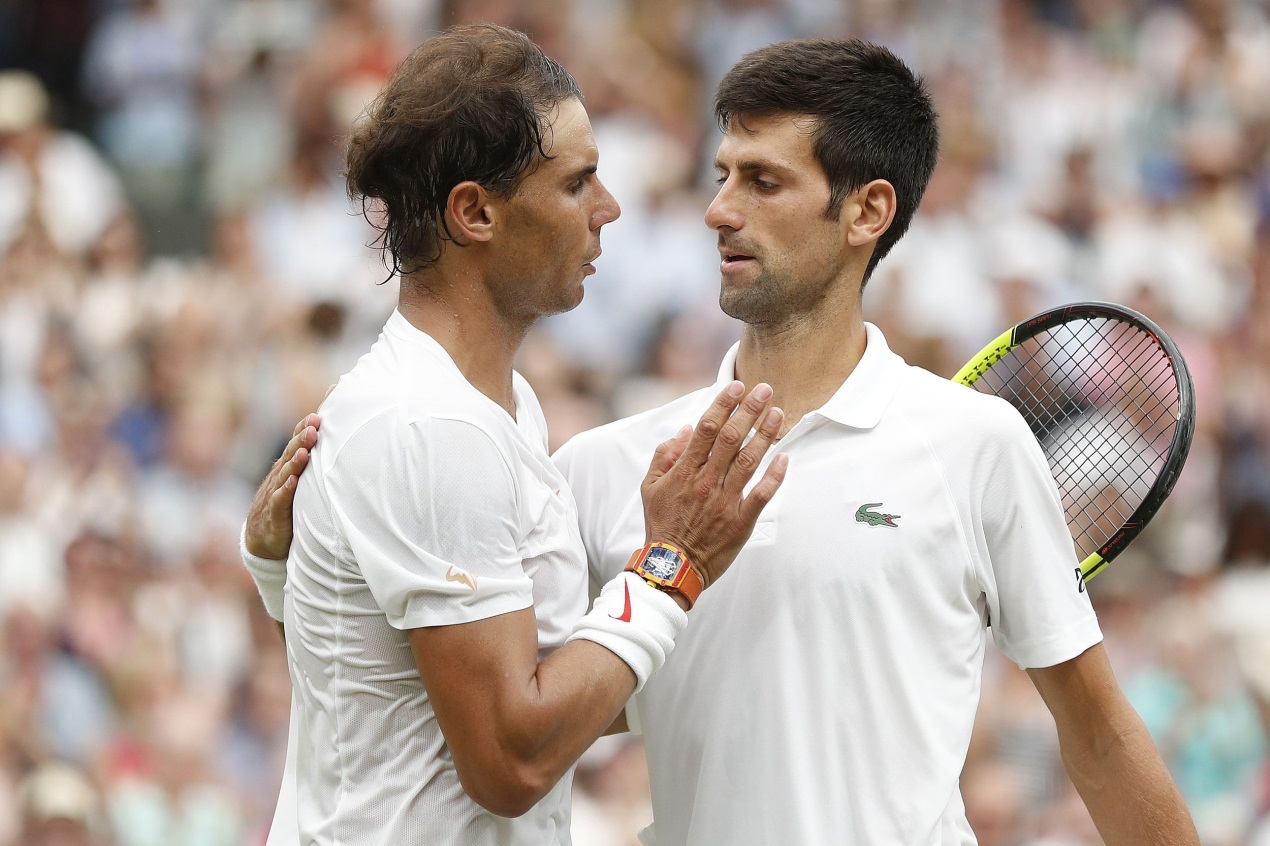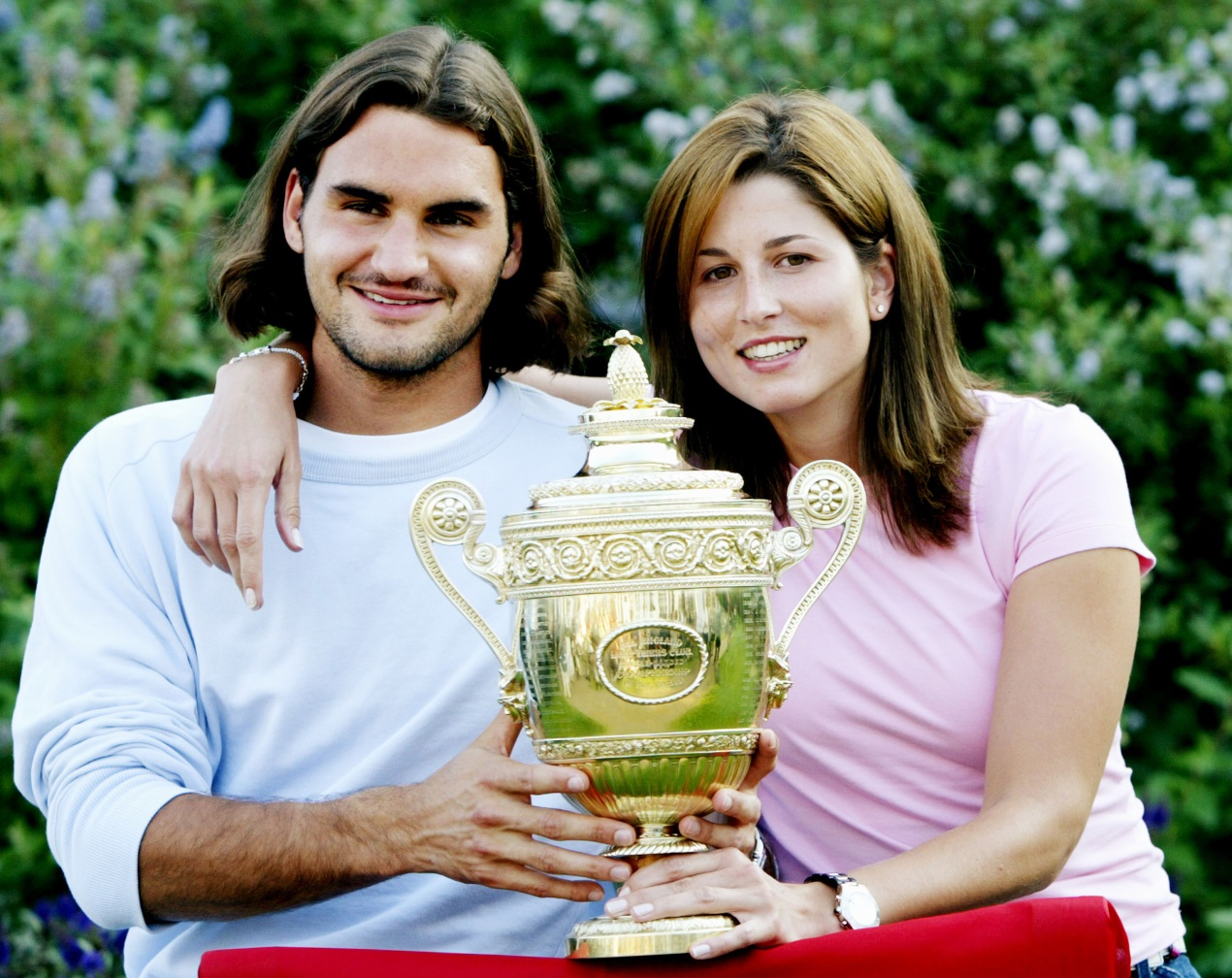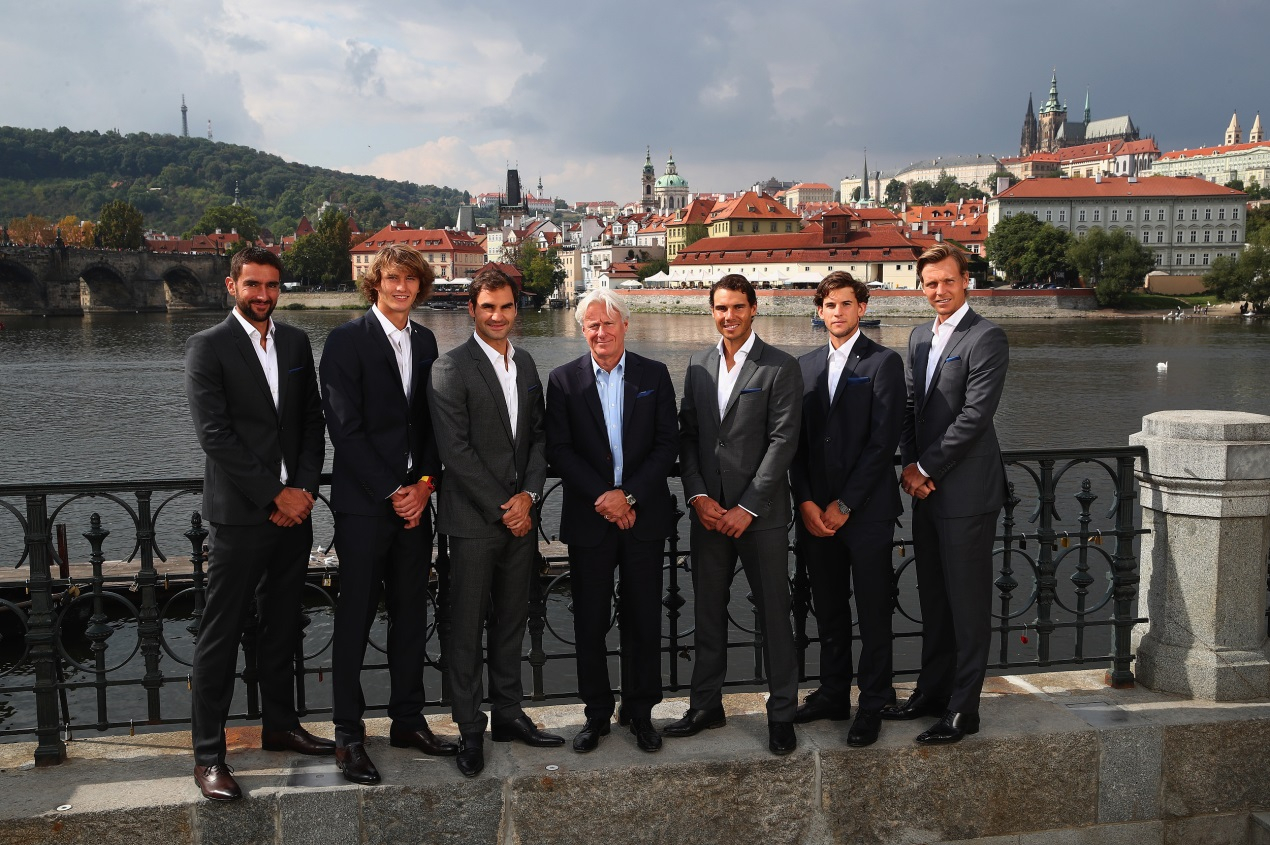
Sports
16:53, 29-Oct-2018
Have 30s become the new 20s for Grand Slam winners’ age in men’s tennis?
Updated
16:08, 01-Nov-2018
Suvam Pal

With Roger Federer, Rafael Nadal and Novak Djokovic have still been going strong and predominantly ruling the roost for over a decade, men's tennis has been facing a new crisis for quite some time. There is no new star on the horizon as the Big Three's combined dominance has been choking the way for the emergence of a new champion or a next-generation icon for more than a decade.
Interestingly, apart from Federer, only nine other players won a men's singles Grand Slam since the Swiss Ace won his maiden major at the Wimbledon way back in 2003. Three among them – Andy Roddick, Gaston Gaudio and Marat Safin – have hung their racquets many moons ago while the remaining Federer-era Grand Slam-winners of the lot – Rafael Nadal, Novak Djokovic, Juan Martin Del Potro, Andy Murray, Stan Wawrinka and Marin Cilic – are still active and have already entered their thirties, like Federer.

Serbia's Novak Djokovic (R) shakes hands after beating Spain's Rafael Nadal during the men's singles semi-final at the 2018 Wimbledon Championships. /VCG Photo
Serbia's Novak Djokovic (R) shakes hands after beating Spain's Rafael Nadal during the men's singles semi-final at the 2018 Wimbledon Championships. /VCG Photo
The decade-old dominance of the Big Four
Statistically, out of the 62 men’s single Grand Slams finals played starting with Federer’s first win in 2003, the Big Four of Federer, Nadal, Djokovic and Murray have amassed a whopping title tally of 54 while the combined number for the Big Three is 51. Age-wise, Federer is 37, Nadal is 32, and Djokovic is 31 while Murray is 31.
Since Federer's path-breaking Wimbledon triumph in 2003, his compatriot Wawrinka is the only singles player outside the Big Four who has managed to win more than one title at a major with three in his kitty. But the Swiss late-comer is 33 now. Two of the remaining active Grand Slam-winners, Del Potro and Cilic, are already 30. This means the current below-30 generation hasn't been able to produce a single men's singles Grand Slam winner, and that's a rare phenomenon in the history of men's tennis for over a century.
In fact, in a physical sport like tennis, where endurance and agility is the key, very few can afford to be a late-bloomer and a champion is born quite early, mostly as a teenager or in the early twenties.

Roger Federer with the girlfriend, Mirka Vavrinec after winning the 2003 Wimbledon Men's Singles Championship. /VCG Photo
Roger Federer with the girlfriend, Mirka Vavrinec after winning the 2003 Wimbledon Men's Singles Championship. /VCG Photo
The early-bloomers in tennis history
Historically speaking, Rod Lever became a singles Grand Slam winner at 21, Roy Emerson was 24, Jimmy Connors was 21, Bjorn Borg was 18, John McEnroe won his maiden Grand Slam at 20, Mats Wilander at 17, Stefan Edberg at 19, Ivan Lendl at 24, Boris Becker was only 17, Pete Sampras was 19 and Andre Agassi was 22 when he won his maiden Grand Slam singles title.
Among the current Grand Slam-winning generation, Federer was 21 when he won his maiden Wimbledon title in 2003, Nadal notched up his first-ever Grand Slam title at Roland Garros in 2005 as a 19-year-old, and Djokovic was 20 when he won his maiden Grand Slam at the 2008 Australian Open.
Incidentally, Safin had won his first of the two Grand Slam singles titles at the age of 20, Gaudio was 25 when won the French Open in 2004 while Roddick won the 2003 US Open at 21. When, Del Potro (6 ft 6 in) became the tallest ever Grand Slam champion, a record he now shares with Marin Čilić, at the US Open in 2009, he was 20. After remaining overwhelmed by the Big Three for a few years early in his career, Murray claimed his maiden major in 2012 US Open at the age of 25. Cilic was 26 when he notched up his first and only Grand Slam title in 2014. The only late-bloomer among the lot, Wawrinka came out of Federer's colossal shadow to win his maiden Grand Slam at 28.

Marin Cilic, Alexander Zverev, Rodger Federer, Bjorn Bjorg, Rafael Nadal, Dominic Thiem and Thomas Berdych pose for photos ahead of the Laver Cup on September 20, 2017, in Prague, Czech Republic. /VCG Photo
Marin Cilic, Alexander Zverev, Rodger Federer, Bjorn Bjorg, Rafael Nadal, Dominic Thiem and Thomas Berdych pose for photos ahead of the Laver Cup on September 20, 2017, in Prague, Czech Republic. /VCG Photo
The dearth of early twenties champions
However, there is hardly anybody from the current 20s generation who has come close to winning a major in the past few years.
Bulgaria's young sensation and the current world no. 5 in the ATP rankings, Alexander Zverev from Germany, is only 21 and is the only below-25 player in the top 10 of the men's singles rankings.
Quite interestingly, seven out of the top ten is 30 or above while the remaining two, seventh-ranked Dominic Thiem of Austria is 25 years old and 10th ranked Grigor Dimitrov of Bulgaria is 27.
The likes of 33-year-old John Isner and 32-year-old Kevin Anderson are still within the top 10 of the men's singles rankings even without winning a single Grand Slam singles title in their respective careers. Although a slew of below-25 youngsters in the top 20 like Borna Coric (21 years), Kyle Edmund (23 years), Stefanos Tsitsipas (20 years), Karen Khachanov (22 years) and Daniil Medvedev (22 years) have shown some promise, they haven't yet proven their mettle to be a Grand Slam winner.
This shows the lack of depth among the new generation of players as the old guards have been reigning supreme in men's tennis, making the age group of above thirties the new twenties in world tennis.

SITEMAP
Copyright © 2018 CGTN. Beijing ICP prepared NO.16065310-3
Copyright © 2018 CGTN. Beijing ICP prepared NO.16065310-3